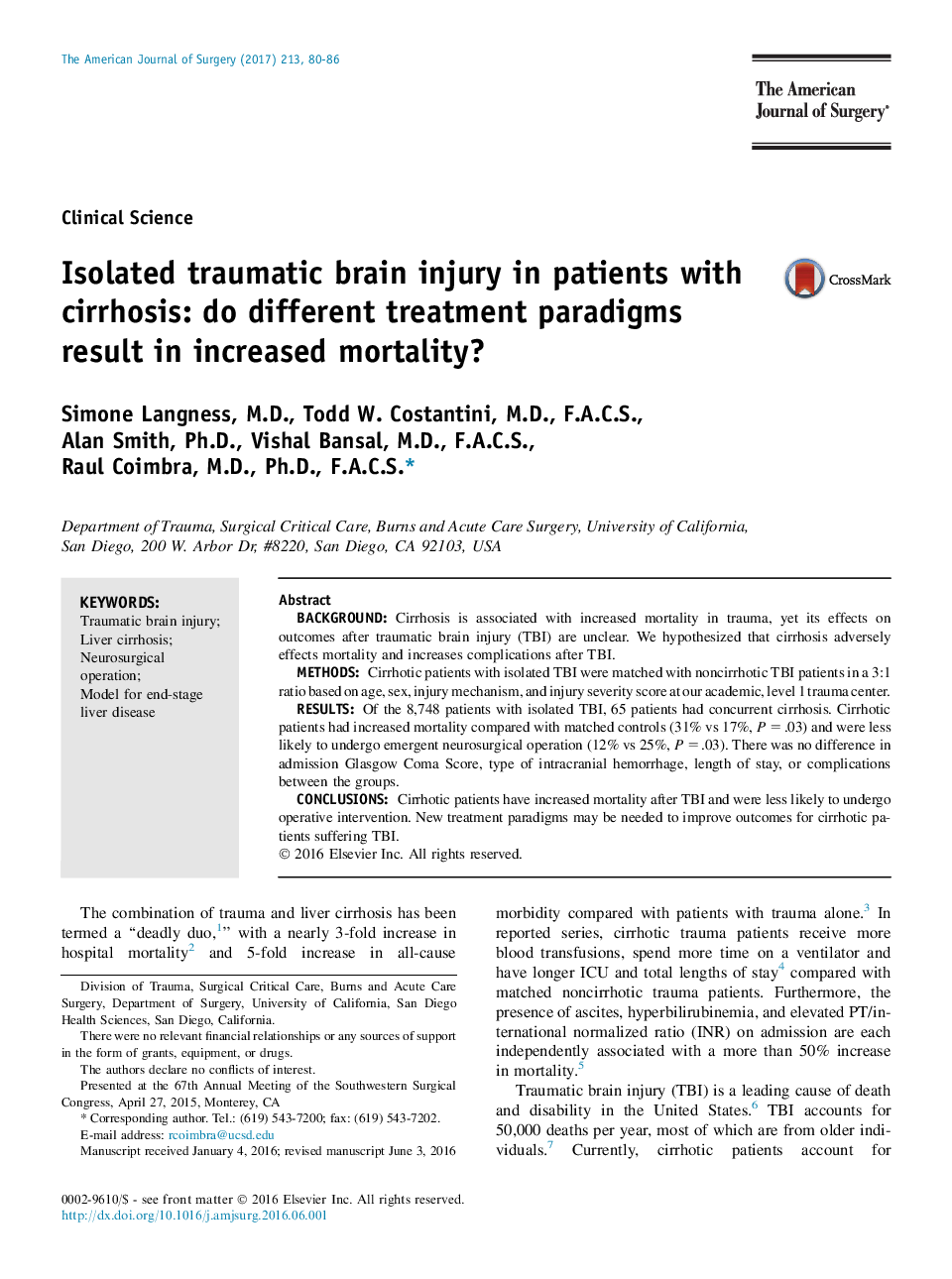| Article ID | Journal | Published Year | Pages | File Type |
|---|---|---|---|---|
| 5731168 | The American Journal of Surgery | 2017 | 7 Pages |
BackgroundCirrhosis is associated with increased mortality in trauma, yet its effects on outcomes after traumatic brain injury (TBI) are unclear. We hypothesized that cirrhosis adversely effects mortality and increases complications after TBI.MethodsCirrhotic patients with isolated TBI were matched with noncirrhotic TBI patients in a 3:1 ratio based on age, sex, injury mechanism, and injury severity score at our academic, level 1 trauma center.ResultsOf the 8,748 patients with isolated TBI, 65 patients had concurrent cirrhosis. Cirrhotic patients had increased mortality compared with matched controls (31% vs 17%, P = .03) and were less likely to undergo emergent neurosurgical operation (12% vs 25%, P = .03). There was no difference in admission Glasgow Coma Score, type of intracranial hemorrhage, length of stay, or complications between the groups.ConclusionsCirrhotic patients have increased mortality after TBI and were less likely to undergo operative intervention. New treatment paradigms may be needed to improve outcomes for cirrhotic patients suffering TBI.
